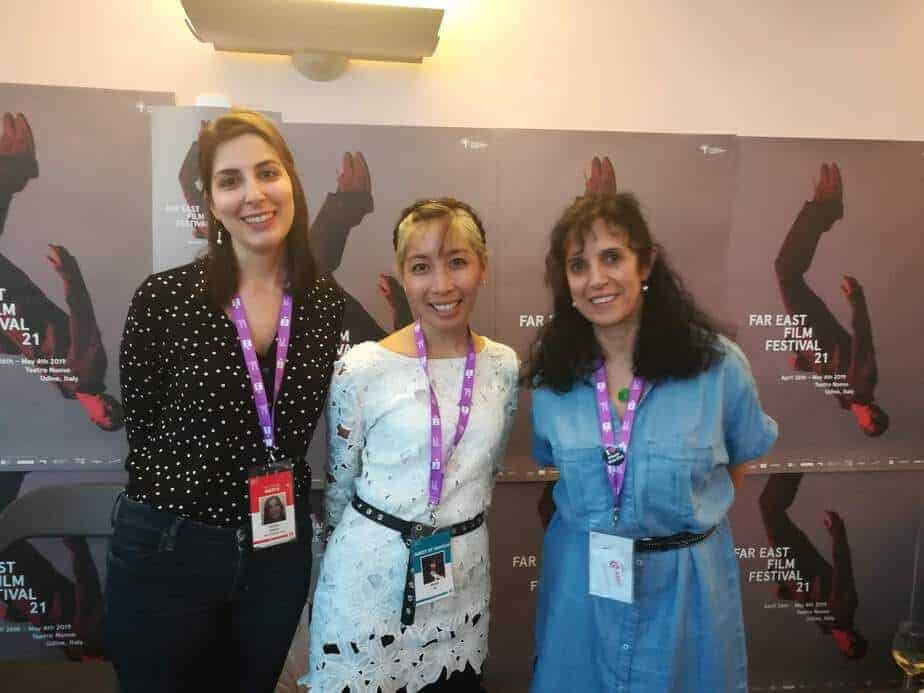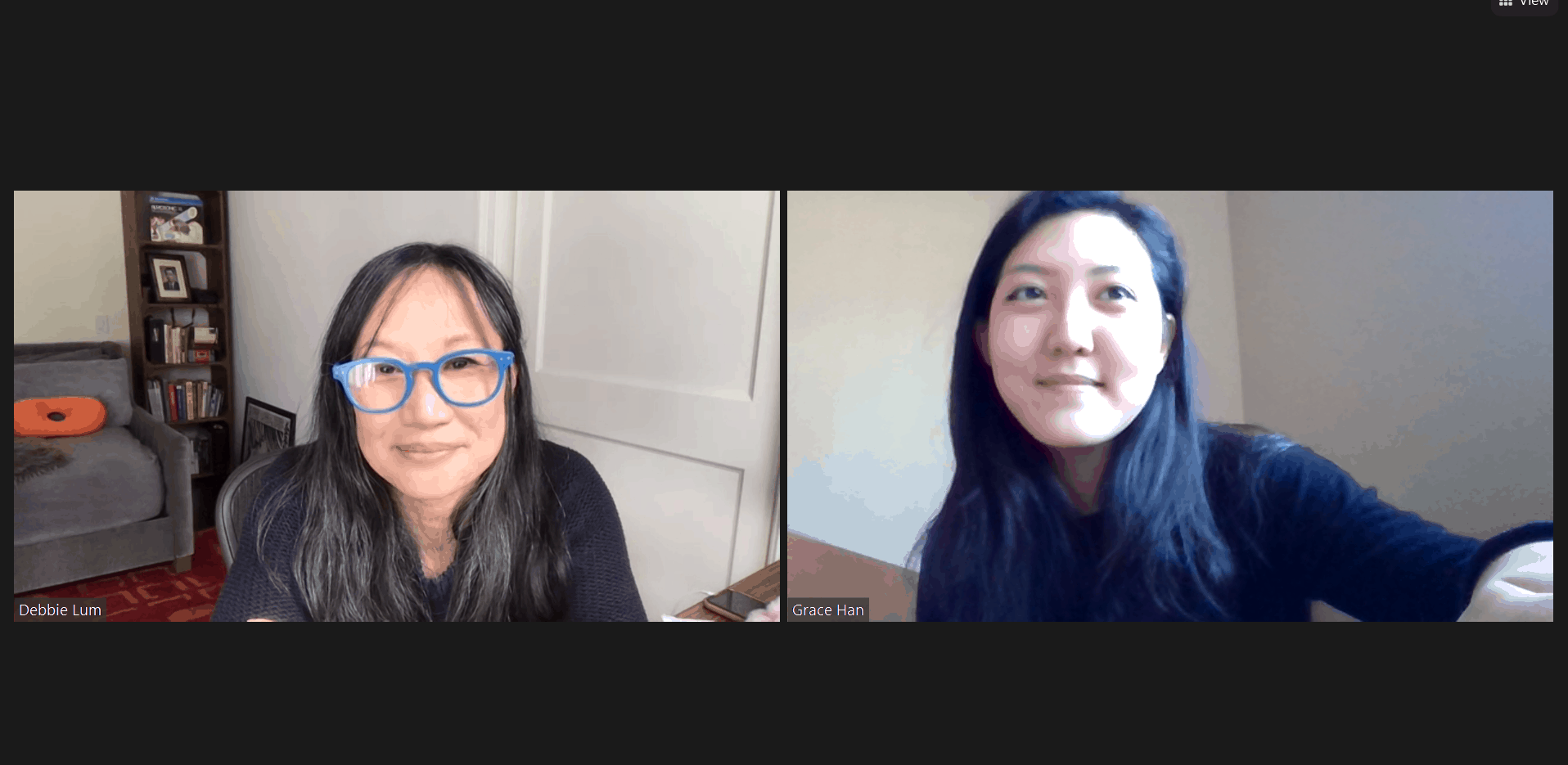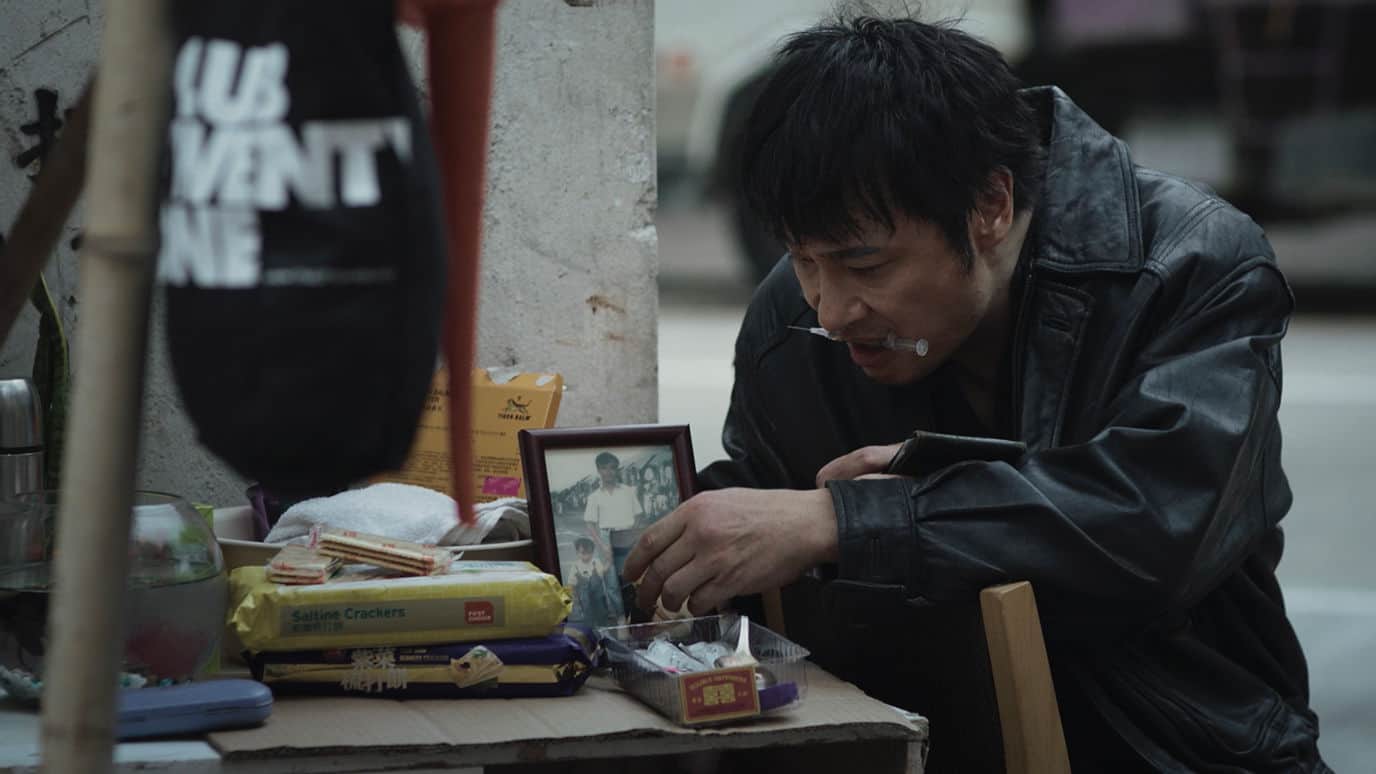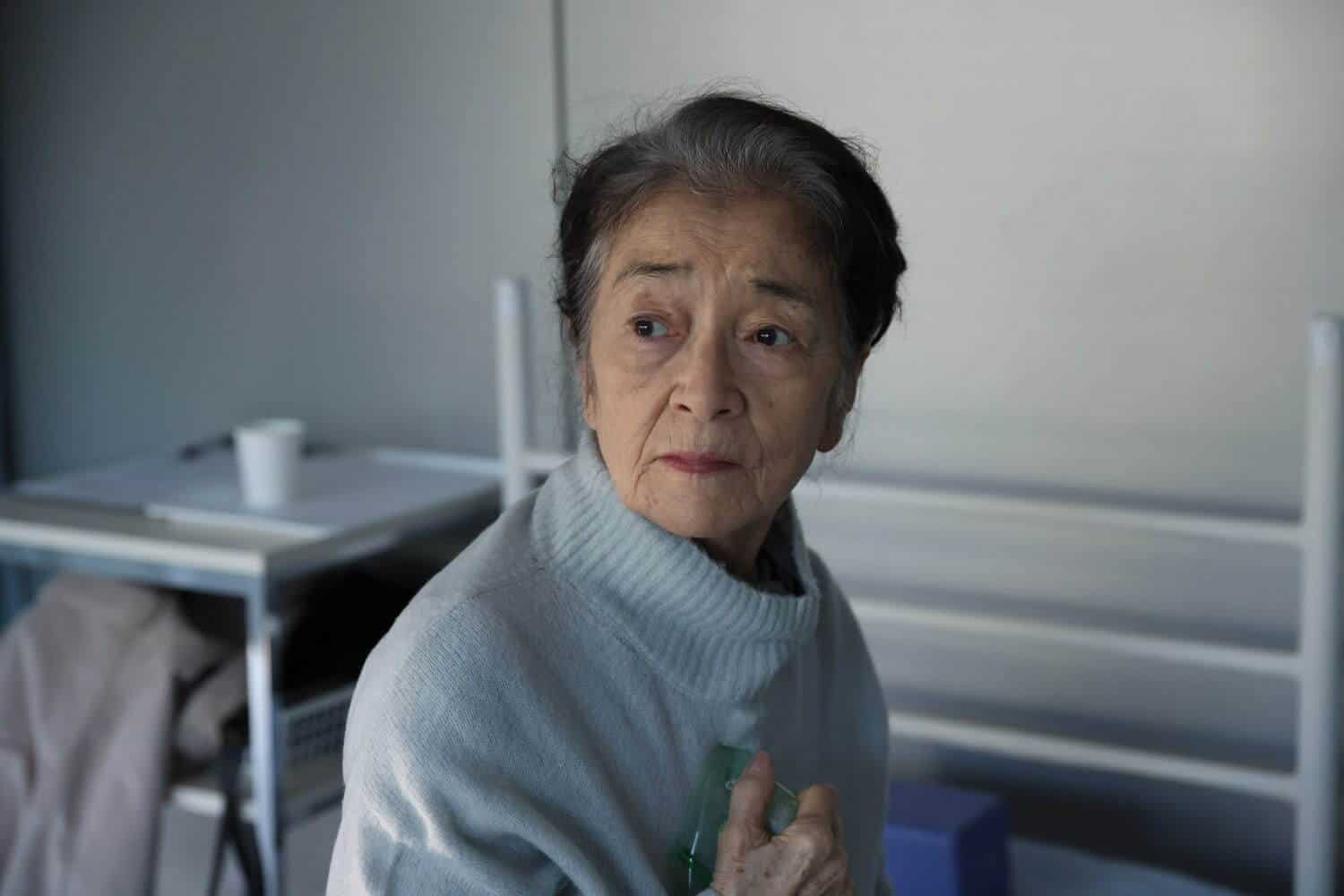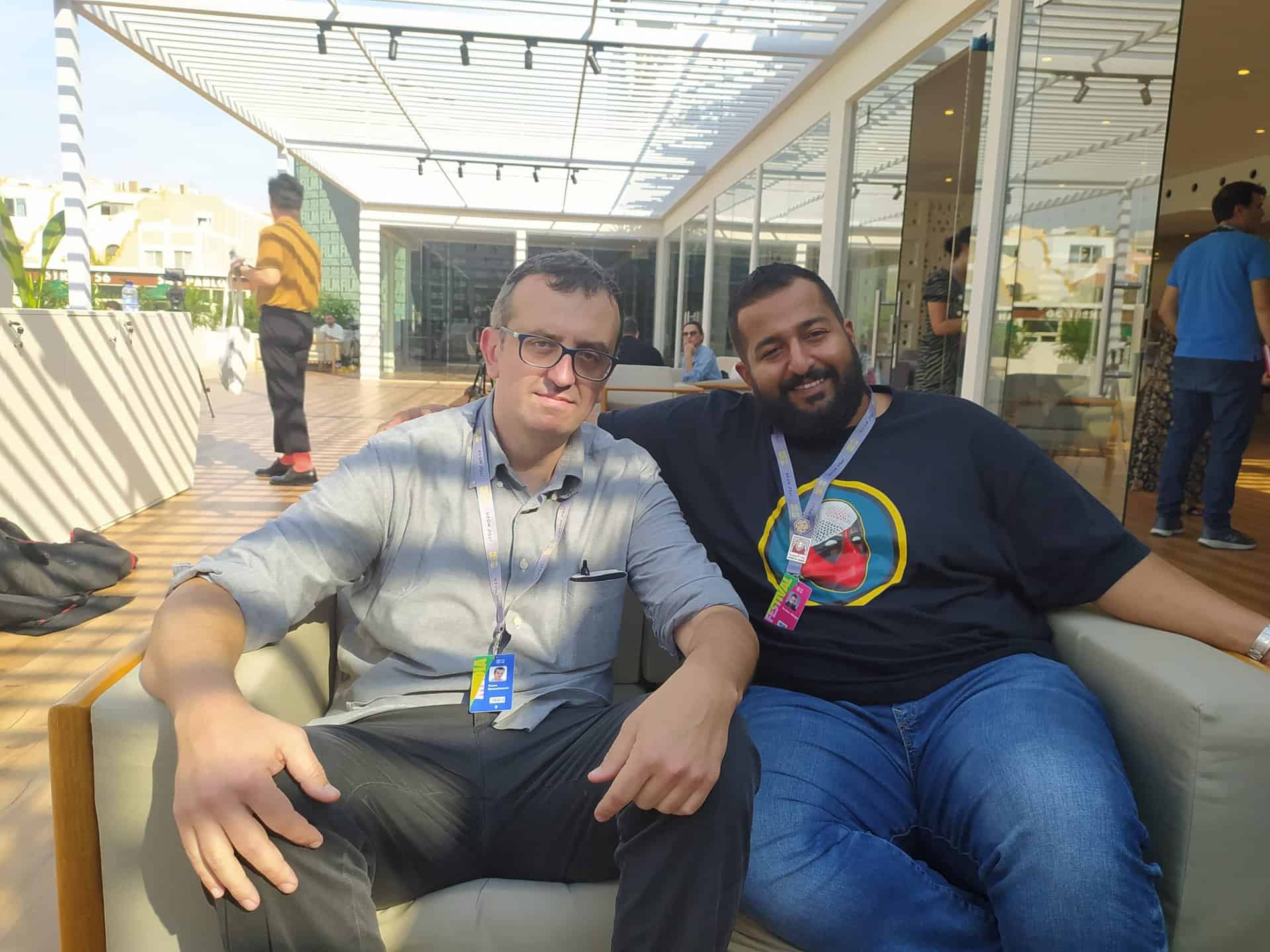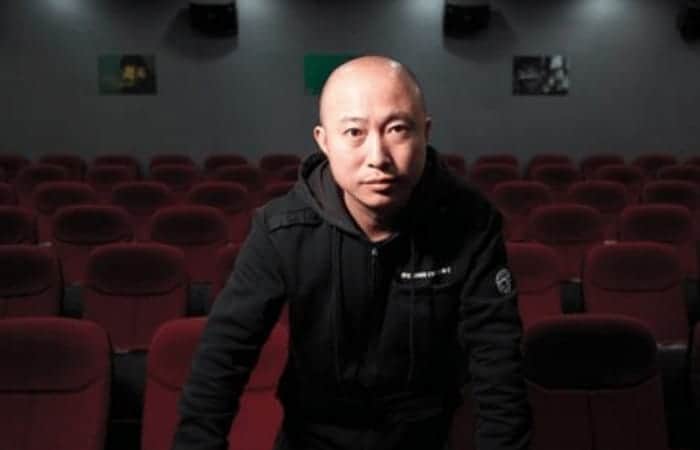Interview by Adriana Rosati and Oriana Virone
Born and raised in California from Lao and Vietnamese parents, Mattie Do established herself as the first female director in Laos. She has now directed two movies (“Chanthaly“ and “Dearest Sister“) and is working on the third one.
Asian Movie Pulse met her at Udine Far East Film Festival, where she was part of the jury. We discussed jury duty, identity, women in the industry, death and new projects.

How is the jury duty going?
My jury duty is going very well. I have to admit I am quite jealous being the jury of these filmmakers and their first movies. Because these films are so much better than my first film (laugh). It's incredible the new talents! We have about 14 films, and I think the most difficult thing for the jury duty from my section is that they are really different films. Typically, when you are in a section or a group, the films are similar. They are all actions films, or fantastic, etc. But in this case, we have horror movies and then drama and love and action, all grouped in one category. Because the stipulation is that it is their first-time as filmmakers. So they are very different films and it is hard to compare them and pick.
Is it your first jury duty?
I was jury the day before I arrived here, at a Malaysian Film Festival. So, this is technically my second time doing jury for features (laugh). A long time ago, I was on the jury for a short animation section. That was really interesting. That was fun. So, I don't really have a lot of experience doing jury and that's why I'm taking it super seriously, with all my criteria.
Is it a lot of pressure?
Well, it is, especially for these new filmmakers. Because this could be the motivator for them to make even more awesome films and I don't want to bring them down.
Is your experience in Udine as a jury member very different from your experience as a filmmaker presenting her film?
I made so many friends, and I love the festival. I love the atmosphere. I was really shocked by how much interest there was in Asian films. Being back doesn't feel different. It feels more like a reunion, a return. I feel very comfortable. My fellow jury members, they're also super sweet and laid back and casual. So we don't feel like the stiff judges, very serious. We are very happy to discuss with each other and also to watch the films together. It's such a wonderful experience, especially to see it on the big screen. You feel different when the audience is there.
Do you watch the movies with the audience?
From before I arrived in Italy, I have the screeners. But since I arrived in Udine, I have been able to watch them in the cinema with the audience.
How is it going with the other members of the jury?
We see each other all the time, which is nice. Jury duty is really fun because we become like a small family. And we've had some casual talks about the movies but the intense and official discussion is coming up soon.
Did you already make up your mind?
No, I haven't. But I have favourites, I have to admit. But I have to rank them. As a jury member, I don't like to pick films by my personal preferences. I am definitely a jury member that, even if it's a film that is not my kind of subject matter or that I would never watch, I can still analyze the film from an objective level. And I don't believe that it is only academic either. I am not only looking at technique, production values, etc. For myself, it's a combination of many things. But in terms of what I already think I want, yes. But I am not set on it. When the three of us come together to discuss the movies, I want to see how the other two are basing their criteria for their film selections, and to see how similar it is to mine, and then I think we can narrow it down. But I think we have quite similar choices. So we should come out with all of our limbs and all of us alive, no puns and no one bruised (laugh).

You grew up in the US, but you are Laotian and work in Laos. How do you position yourself in terms of identity?
Identity is very important and I'm glad you're asking about that because I think some people don't dare to ask me about identity. And also because I think that I do have a reputation of being a bit feisty. But no, identity is extremely important, because there's so many ways that someone can identify themselves, right? And I do feel extremely Lao, but I also feel extremely Californian, because I was born in California and raised there.
I get questioned a lot by people about how authentic my work is. I've been told to my face that I don't deserve to make films because I'm not a real Lao. And I have a Vietnamese last name because my father is of Vietnamese ethnicity. And so my house is very international. And I have some Thai blood as well, because on my mother's side of the family, there's also Thai people interspersed in there. And so, I like to tell people that I'm Asian, the way most white people in America are supposedly European. I'm a Mutt.
And when I was really young, it was hard because, being Asian from an immigrant family, I was never white enough to be American, and neither was I Lao enough, or Vietnamese enough. And so I never fit. I never fit in any category. The only category I probably fit in was I was Californian because anyone born in California is Californian. But one of the good things about that is that, even though it was a negative impact from my childhood, as an adult, I feel it's added to my work. It's become what informs my story and what makes me able to make the films that I make. And I'm able to offer an insider's perspective of what it is like to be a woman in Laos and to have a look inside the Lao family, behind the closed doors.
Because most people who come to Laos to visit and who do tourism, they only know what they see on the outside. “Oh, lots of people are so happy. They're always smiling. They're all such good girls”. We have issues too, and every family has issues, every culture has issues. But at the same time, as an American or an outsider, I'm able to pinpoint the things that Lao people might find uninteresting to put on screen. They might think “why would anyone want to see that? It's just so common”. They wouldn't even think about putting it on screen. But I know, as an outsider as well, that that's not something anyone's ever brought up. For instance, in “Dearest sister”, I show the dynamic between the foreigner marriage, the sort of indentured servant style – of treating your own relative from the country like that. They won't put that on the screen, because that's just normal. But I can put that on screen because a lot of people don't know about it and they would be interested in it. I can kind of pose- I don't want to say a problem – but pose a current event – a problem on screen without a solution- for people to acknowledge it , because I can observe it as an outsider and an insider.
Are you now confident that you deserve making your movies and that “the mix” is a good thing?
I feel like that. But when I was young, I did not feel that it was a good thing at all to be a mutt. It is hard at an age where you build your self-esteem. I mean, definitely now if someone says to me that I'm not a real Lao or that I don't deserve to make a film, I just tell them “fuck you”. But now it's hard in a different way. Now, I get angry. Before, I would get hurt. But now I get angry and it's kind of been a motivating factor for me. Because the more they tell me these things, the more I push to make my films, because the only way to shut those motherfuckers up is to make my work. And I do that. It's gotten to the point now where they can say whatever they want, but it's not going to stop me from making films. And that's why I do it. That's the belligerent attitude that I have. And now they've kind of dubbed me “The Vanguard” or “The Rebel” of Lao film because of it. Even the government thinks it's hilarious. The government in Laos is very supportive of my work because they're proud that I'm able to put Lao stories out for other people to see.
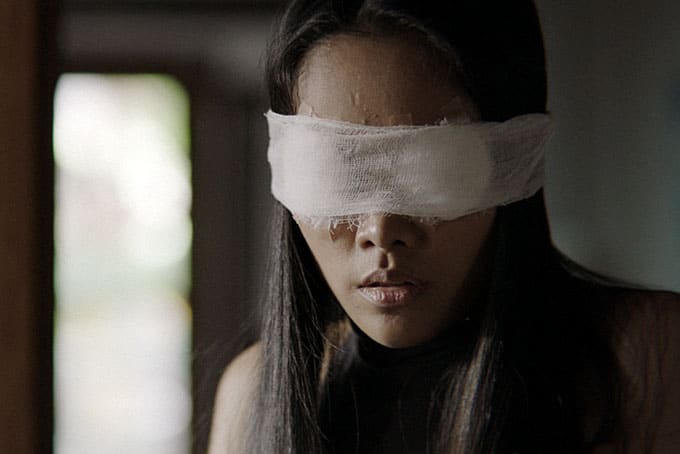
You put Laos on the map, your second movie was selected to represent Laos at the Academy Awards…
And the government was so proud and that's why I'm able to do the work that I do, because the government is also happy. People like to criticize Laos for being a small single-party country that has censorship and you know, we still have a developing and national film industry. But honestly, the government has helped me a lot. You take small steps, first it was “Chanthaly”, then “Dearest Sister”. And they see that you can keep escalating the subject matter, and their content, and the diversity of the film, and it's fine. And we're opening the doors to making different films. Step by step. So that is wonderful.
Is the fact that you are the first woman filmmaker in Laos something that is also pushing you to make films?
It's 50/50. I'm happy to be a female filmmaker because I was the only one, in the beginning, to really put the female perspective with female characters on screen. Before in Lao film, the female is the love interest or the one who just cries all the time for no reason. Why is she always crying? I don't know. I think it's maybe because that's what people expected from a female character. And I look at our society and Lao women are so interesting. Their stories are so profound and they are so flawed as people. I'm addressing issues that never get known by anyone. For me, to be able to put that on screen, that's amazing. And people can also see it.
Females, not only Lao females, but women are multidimensional. They make mistakes, they have victories, they have joys, they have woes. And I'm very proud that I can put that on screen. I don't have an agenda to only make female films. Of course. I just want to make films. I would love to make a dog film if I could.
I think that being a female filmmaker has been 50/50 for me, because in some ways the Lao people are super proud. They didn't even think that it was a job that most women would go for, or want to do. So it was a surprise when I made a film. They were like “oh, yeah, women can do this too”. But it wasn't mean. It wasn't a condescending thing. It's just that it had never occurred to them. Because when you look in the media, you always see men, as directors. I think that the image that they had was Steven Spielberg. He's a man, he's a director.
But then the bad part is that there are a lot of people who say that the only reason why I'm making films is because I'm a woman and I'm a novelty. And that I'm using that title. And I didn't give myself this title. People started saying “Mattie is the first lady of Lao film”. And it's kind of funny. But then there are people who are saying that I'm using that to be able to make films. But it's untrue. Because after you make one film, if it's only a novelty then, you don't really get to make other films. You have to be able to prove that you can keep doing it.
Now you are in a good place. But how was it to lift your first project?
It was just an accident really. I was really, really, really lucky.
I was playing the work print, the rough cut, at Luang Prababang Film Festival, which is our local festival. And it went terribly, actually. The render was done wrong by one of the technicians. And the film was the opening night film and it froze. It was a total disaster! And they were pulling the film, and of course the festival director felt very humiliated that my film, the opening film, was a disaster. And I said: “I will do it”. And I begged him to let me have another day because another film had pulled out, I can't remember why, but some other film had pulled out. And I said: “can I take that slot?” And he was reluctant. I said that I would fix the file by myself. I would take it away from that technician and I would do it in my own hotel room on my own laptop. And I did. And we played it. And it was really funny because there was a reviewer from Bangkok Post, he doesn't even review anymore. And he saw the film and he just thought it was such a different film, really interesting. So he wrote a review about it, that was quite positive. And somehow that review was read by Todd Brown at XYZ in America. And he figured out my email address, he asked around. And it was really difficult to find me, because I had no link to film people, I knew no one in film, I knew nothing about film. I only made the film. And then he emailed me and I had no idea who he was, I didn't know what XYZ was, and he asked me if he could see the movie. And I was like “yeah, okay, whatever”. Which, apparently, you're not supposed to do. And you're not supposed to send an unfinished work to a producer. But I did. I sent it to him. And he sent me notes. And I was like “oh, this guy is so nice”. So I started editing, and my husband came in one day and he's like, “what are you doing?” And I said, “this guy named Todd Brown from XYZ wrote me. And I showed him the film because…” And he said “you did what?!” And I was like “yeah, this guy. And he gave me notes and…” my husband said “he did what? do you know who this guy is?” And I was like “no. Like I said, I don't know”. And then he said “well, what did you do?” – “well, I fixed it. I sent it to him because he said he wanted to show this film to Fantastic Fest in Austin”. And my husband freaked out. “Do you know what that is?” And I was like “I don't know”. And at that time, I really thought film festivals were just a bunch of nerds that gathered in high school cafeteria and they get a cup of popcorn and a cup of punch, and they watch movies on a TV with wheels. I really thought that's what a festival was. I had never been to a film festival in my whole life.
And so eventually Fantastic Fest actually accepted my movie. And my husband said “you have to go”. And I was like: “no, it's so far. It's like 20-something hours just to go. And we don't have a lot of money, so I shouldn't go”. My husband insisted. And we borrowed money from my dad to go to this festival.
And of course, they gave me a badge and everything, but as a new filmmaker, you are not that familiar. And so, I went by myself, and it was first time I had ever been to a film festival. And it was just amazing. I didn't know that it was like this, where it was back-to-back movies and cinephiles coming out, so knowledgeable about films and that they are so many. It was the first time I'd ever seen a festival film too, and I realized that people can make this kind of shit, and people watch it. Because I had only ever seen popcorn films before I became a filmmaker. I had seen ‘The X-men', ‘James Bond', ‘Terminator', and stuff like this, very commercial. I was a dancer before, so I didn't have a lot of time to go to the movies. And it just completely changed my perspective about what a film that can be. And then I decided to be a filmmaker.
What made you decide to work on the first movie if you weren't planning on being a filmmaker?
“Chanthaly” was an experiment. It was meant to be my practice film to try and do a real film after that. I was given the opportunity by Lao Art Media to make a film. Lao Art Media wanted my husband to be the filmmaker because they knew he was very experienced. He taught and he was a screenwriter. And so my producers are older and they said they are not really directing anymore, and they have a lack of content and so “could you help us with content?” And my husband was like, 100% I can help you with content because that's what he does, he writes stories. And they were just so happy and they said: “Okay, here's your office”. And back then, 10 years ago, we didn't have WIFI in Laos. We had Internet cafes but normal people at home did not have the internet. And we didn't even have 3G or anything. But that office at Lao Art Media had WIFI. So my husband was so excited! And they told him he needed to direct the film. And my husband was just “I don't direct and I don't speak Lao”. He's American and Irish. And I had gone with him to translate, but actually, he didn't need help because those producers both spoke English and they were just like: “you don't direct? What do we do now?” And my husband is like “Shit, I'm losing the WIFI”. So, he said “Well, she can direct. She speaks Lao fluidly and she has many, many years of experience in performing arts”. But, performing arts? I was a ballet teacher! I taught seven-year-old girls. I remember they were so happy that they opened a bottle of whiskey and brought out the cases of beer because my boss always has cool beers in his office.
The WIFI and the beer…
The WIFI and the beer! Lao Art Media is the place to be. And he brought up the beer and then we had whiskey. We went home and I said to my husband “You are insane. What are you thinking? I can't direct a film. I don't know anything about films. I don't know anything about directing. The only time I've ever been on a film set was was when I was doing makeup in Italy, trying to make extra money under the table to buy my pointe shoes for ballet, because they were so expensive”. And he was like: “No, no, no. You got this, you got this”. And he gave me a book called ‘Directing'. I can't remember who wrote the book. And he said: “Read this, and if you have any questions, let me know. And then you can make films after this. If you can get a six-year-old girl on stage to perform nonstop for five minutes, you can do film”. It's true, though. My ballet experience has really been what makes directing easier. In fact, in some ways and differently, I think that ballet is a lot harder than making a film. We don't have two takes, once we're on stage. It's like an uncut film once you're on stage.
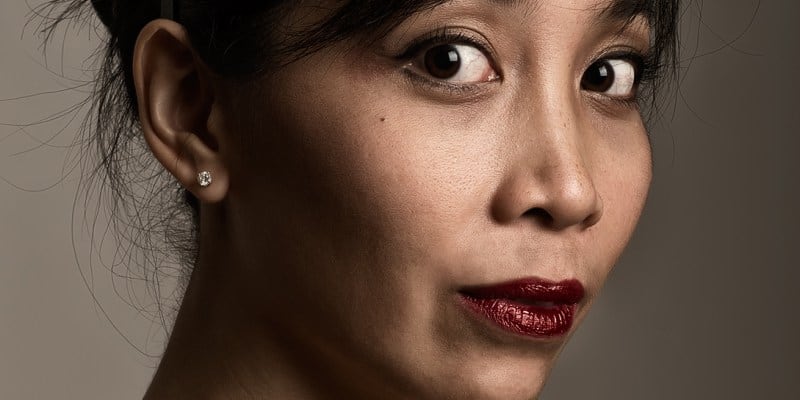
There are recurring themes in your movies: confinement, death, among others.
I'm not sure what motivates that. I do like to talk a lot about familial relationship and death. I liked to talk about loss a lot, because I lost my mother when I was 25. She passed away from cancer. And so the theme of death is very prevalent in most of my films. And in terms of confinement, I do think that a lot of people mentally confine themselves, and society confine us. And I think that we also put ourselves into positions where we feel like we cannot express ourselves, especially women. I do think that often women are unable to freely say what they're thinking, do what they wanted to, and that they feel confined- if not by their own families, by their friend group or by their peers, and colleagues, and society. And so, this is a theme that I like to show on screen.
My new film, that I'm in post-production for right now, it's very different. There's this huge open space, outdoors, like 90% of the time in the jungle. But it has got that same isolation feeling, that loneliness. It's all about loneliness, regret, and isolation. And again, another recurring theme, selfishness. Because I do think that as humans, we're quite naturally selfish. And the new movie also involves loss again. And I think this is something that, for me, just keeps coming back in my work.
Can you tell us more about your new movie?
The new film is weird, extremely weird. I think you'll like it, but it's very hard to describe because it's dealing with so many things at the same time. It has a hermit, an old man who lives by himself. And he euthanizes people because he feels that he's helping them and easing their suffering. But did they ask for that? It's quite selfish for him to assume that he's an angel of mercy. And the movie has two different timelines. So, it's actually a sci-fi time-travel film. And when the character starts to believe that he can manipulate his past, he affects himself as a little boy. It's such a selfish decision for him to do that. So, he's going back and feels that he's helping the little boy/himself.
But by helping himself, this poor little boy doesn't get to live what he should be choosing. And at the same time, children don't get to choose their lives. Adults are always forming what life is for them and the choices are made for them. And there's a lot of that in my film, where choices are being made for other people, whether the adults are making it for the little boy, or the old man is making it for the people who are suffering, or foreigners who are coming to our country and making decisions for our country.
You also have a recurring theme of death in your movies.
There's definitely that aspect. There is a ghost in the film. There are many ghosts in the film. And it does specifically handle the supernatural.
I'm not a religious person. In fact, I was raised Christian and I wouldn't say that I'm not spiritual. I just don't think about it a lot. But in my work, I like to address it. And this is a very Buddhist film. Because of the cyclical timeline. I think a lot of occidental people thinking of time as a straight line. You go from point A to point B to the end, life to death. But because a lot of Buddhists and a lot of Lao people believe in reincarnation, I really put this element into the film about Buddhism and reincarnation. Even though I'm not a religious person myself, I just think that the way my country approaches to time and consequences makes for an interesting story.
What is your idea of death?
I don't want to say that I believe in an afterlife, but I don't want to say that I positively do not believe in an afterlife. And I've experienced some things before that I cannot explain, but I don't want to jump to conclusions. So perhaps there are some kind of explanation, but I don't know it. I do feel that we have many depictions of afterlife and death. If it is a spirit being trapped in some kind of parallel plane, that is very sad. If that's the case. But if it's not, if they do move on, that's all right. But at the same time, we, living, are left with a profound sadness.
My idea of death also is that of very solid human-like figures. That's always how my family describe those to me. Also Lao people often talk about encountering physical apparitions. So, when I see the see-through glowing western ghost, I'm very entertained by it. Also by the Japanese ghost that's white, and the room goes black, the cat-ghosts, the grad-ghosts, …These ghosts don't feel like my country ghost to me. And that's one of the reasons why in my cinema, I like to show ghosts. Because I feel like I'm doing what my perception of our cultural death is, according to myself. It may perhaps not be everybody's perspective, but I do feel that in Laos, ghosts are not just flimsy, see-through, glowing ghosts. They are physical, tangible, ghosts. That's why I like to portray them. And in the third film, the ghost is very physical.
In your movies, relationships between women are intense, and often conflictual…
I was raised in a family of men. My mother died when I was 25, but my mother was also a businesswoman, so she was very tough. Like in the book, she was quite a Tiger Mom. And I never made girlfriends until I was adult. Well, that's not completely true. When I was in ballet conservatory, we had so many women, we did become friends. But in ballet, you're working so hard. There is no time for social life and bonding. And we are friends, but not like, your best girlfriends in high school. I didn't have this. I only had guys. I always had my cousins and my brothers. And then, in Laos, women have very close relationships, and I liked that a lot. But then it was also the first time that I experienced a sort of female toxicity. And then I find that in film crews- and I probably need better experiences – but I've had a lot of issues where the relationship between women and myself was very difficult, extremely difficult, to the point where I was afraid sometimes to hire other women because I was worried that it would be toxic on set. But now things are changing. My producer is one of my most trusted person, she's like my sister, she's female. And I have my line producer who is female. I trust her with my life. I'm realizing I just have to find the right team, the right dynamic, and it's not about gender at all. We also have a transgender girl on our team. She's wonderful. We have a very diverse team. It's about personality.
But I do find that before this last movie, my experience with women was just different. I think we're so used to being cut down by everyone, that women will take on the defensive role immediately and then start to protect themselves, start to feel that if they don't go on the attack first, they are going to be the one that goes down.
I think that's changing now. In films, we're a lot more concerned about having women in higher roles, taking many different positions on set, etc. I think that that dynamic is really changing.
Do you think that the film industry is changing in general, or specifically in Laos, especially when they see women filmmaker like yourself?
There are a lot of women who are inspired by what I've done, but I've yet to see a female filmmaker. But I've seen a lot of females taking a lot of different positions on set. Like I said, this crew that I have now, we had quite a lot of females in different set positions. And I ran a program during “Dearest Sister”, where I was training people who are interested in film. I did it on set. Because I don't believe in workshops. What can you learn in a week? So, I paid three or four interns, they actually made more money than I made on “Dearest Sister”, to come and work on the set. And we tried to find where their strengths were. In this new film, they became key positions, because of their experience on “Dearest Sister”. But I have yet to see a female director come out. So far. But it will happen. I'm seeing a lot of female directors for short films and documentaries, etc. It will happen.
The problem in Laos with the female filmmakers is not discrimination. Like I said, Lao people are extremely happy to see a woman in that position. There's an amount of rebellion and an amount of willingness to fight and to face the challenge. I think some women feel like they can't do that. Maybe their parents don't approve. Their parents are like: “why don't you go to university and become a doctor or a lawyer, and then why wouldn't you want to do that?” It's a challenge, but that's why I think it will happen too. There's got to be someone with that rebellious personality. I think for women everything's a little bit harder, right? You always have to fight a little bit harder. So maybe that's one of the reasons why in general it becomes difficult. When you talk about fighting for something, if the man is not facing the same exact problem as a woman on set, then that means it is harder.
I feel like if I am up against a white male director for a film, people will think that he is strong and he can handle it. He will more likely get the film. But if it's me, people will think “I don't know. She has a foreign name maybe, I don't know. There might be some weird cultural stuff. She's female, she's not as strong. Maybe she is too emotional”. These are thoughts people don't have about guys. So yes, I do think it is harder for women. So maybe it's a little discouraging. But then, as I said, I'm a very angry filmmaker, and these are the things that motivate me to make a film.
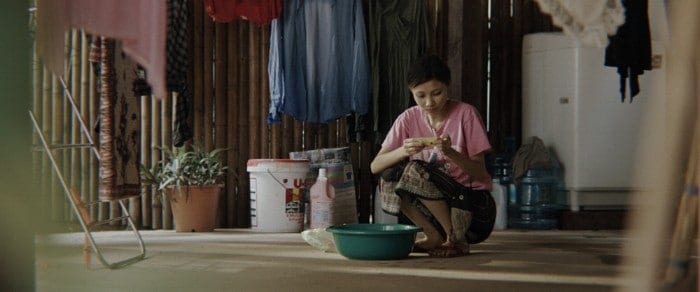
It actually reminds me of the “Scully effect”, that shows the importance of representation. Women who grew-up watching The X-Files are more likely to work in the STEM field
I hope there's a Mattie effect (laugh). I don't know what the problem is, but I know that people feel like they don't want to fight as hard because it's discouraging. It might be that if they see someone just fighting for it, it becomes perhaps easier. And then eventually, maybe, that stereotype about women won't exist anymore, because it'll just be equal. And I hope that will be the case. I really hope that that will be the case, where women just become at the same level playing field. I don't want to feel like I can only be a filmmaker if I have a dick, or that you have to watch my film because I don't have one. That shouldn't even be a consideration. I just want you to watch it because it's a film that you're interested in.
How much are you inspired by Asian movies?
I try to make movies that are not typically South-East Asian. I feel that there's an expectation of what Southeast Asians films are supposed to be. I don't like that. I don't want people to think that my film has to be like this. I don't have to have the sombre colours, where everything is desaturated. You know, these wide shots of the wind blowing leaves in the forest and this tiny little figure sitting there meditating sadly, staring away. And I don't feel I have to do that. I actively go against the stereotype of what people consider Asiatic cinema. And it's easier for me to do that because I have no film background.


